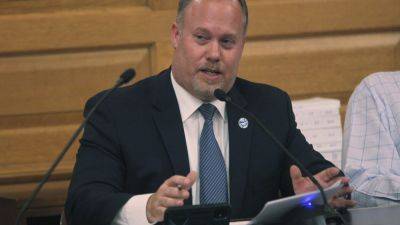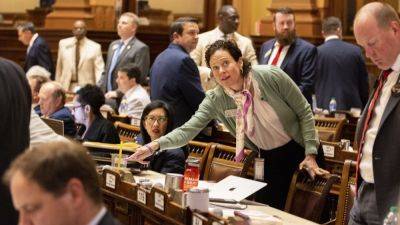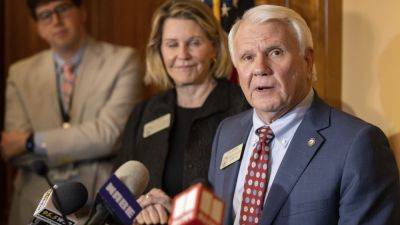Rise in taxable value of homes in Georgia would be capped if voters approve
ATLANTA (AP) — Georgia lawmakers gave final approval Thursday to a package of legislation they hope will limit property tax increases, in what could be Republicans’ signature tax cutting effort of the 2024 session.
The measures include a state constitutional amendment that will need voter approval in a November referendum before it can take effect.
The plan would limit increases in a home’s value, as assessed for property tax purposes, to the rate of inflation each year, unless a city or county government or local school board uses a one-time escape hatch to opt out in early 2025.
Senate Finance Committee Chairman Chuck Hufstetler, a Rome Republican, called it a “tremendous piece of tax legislation to relieve taxpayers in the short term, and over the cap, in the long term, keep their taxes down.”
Lawmakers say that would prevent “back door” tax increases by governments that pocket more revenue when home values go up, by failing to lower tax rates. Many rank-and-file lawmakers say discontent over rising property tax bills is the top concern they hear from constituents. Statistics show overall Georgia property tax collections rose 41% from 2018 to 2022, with total assessed value rising by nearly 39%. Those figures represent not only existing property but also new buildings.
House Resolution 1022 and House Bill 581 passed the House and the Senate, easily clearing the two-thirds majority needed. Lobby groups for cities and counties had agreed to the measure. School boards still opposed it, warning that the cap could starve schools of needed revenue in the future. That’s especially true because most school districts can’t raise tax rates above a certain amount, limiting their ability to raise new revenue.
<bsp-list-loadmore






